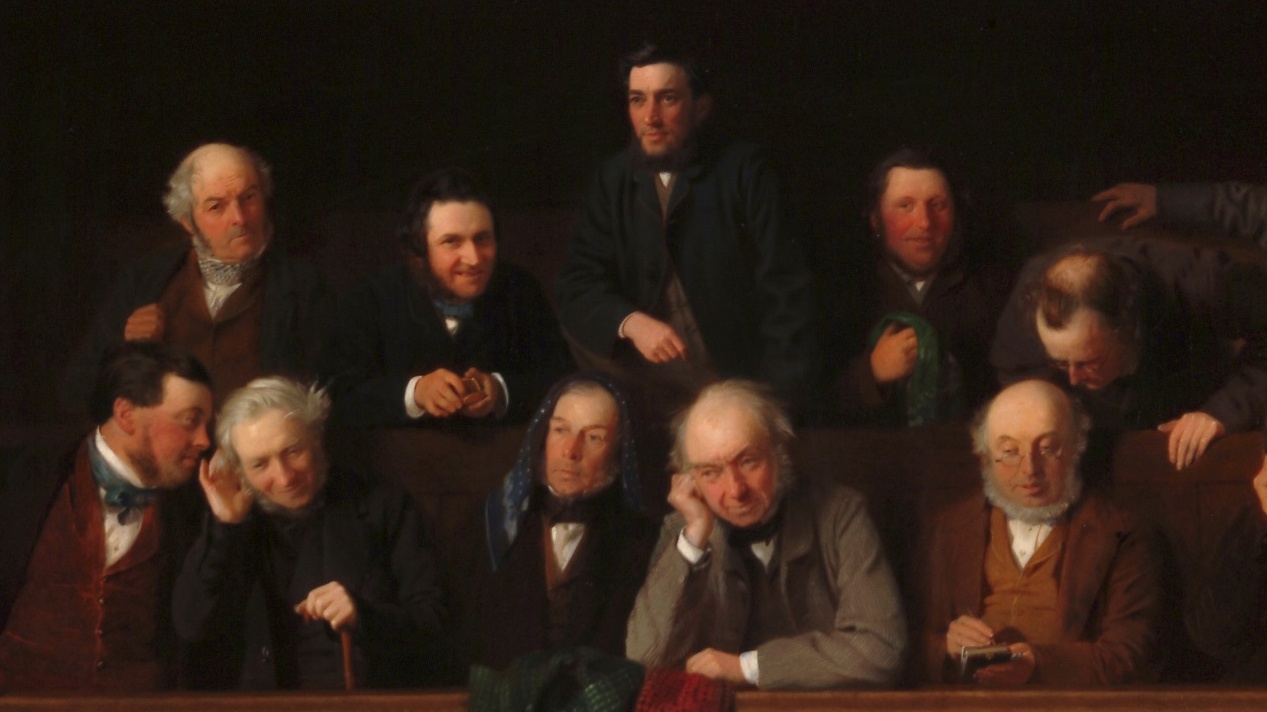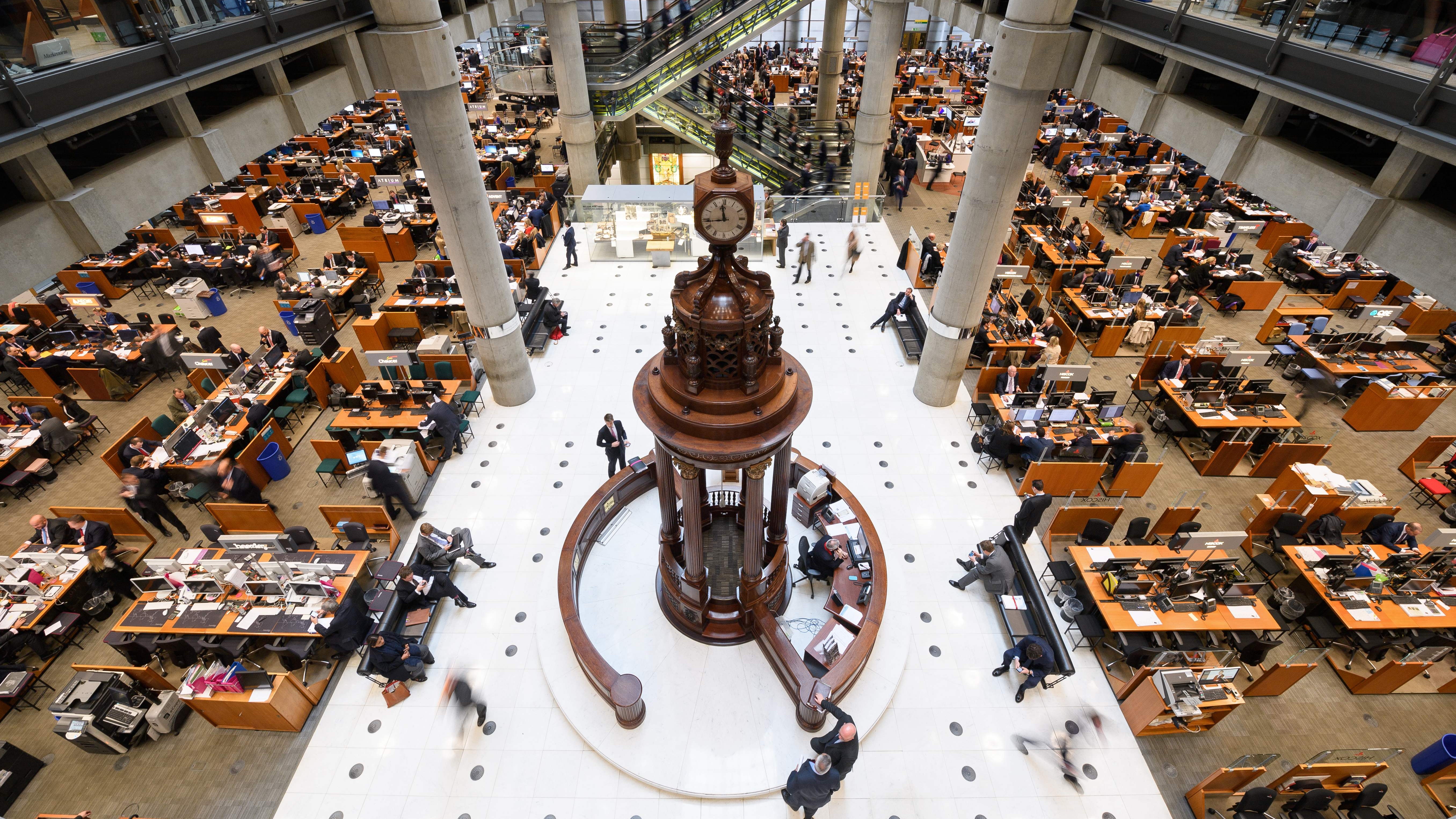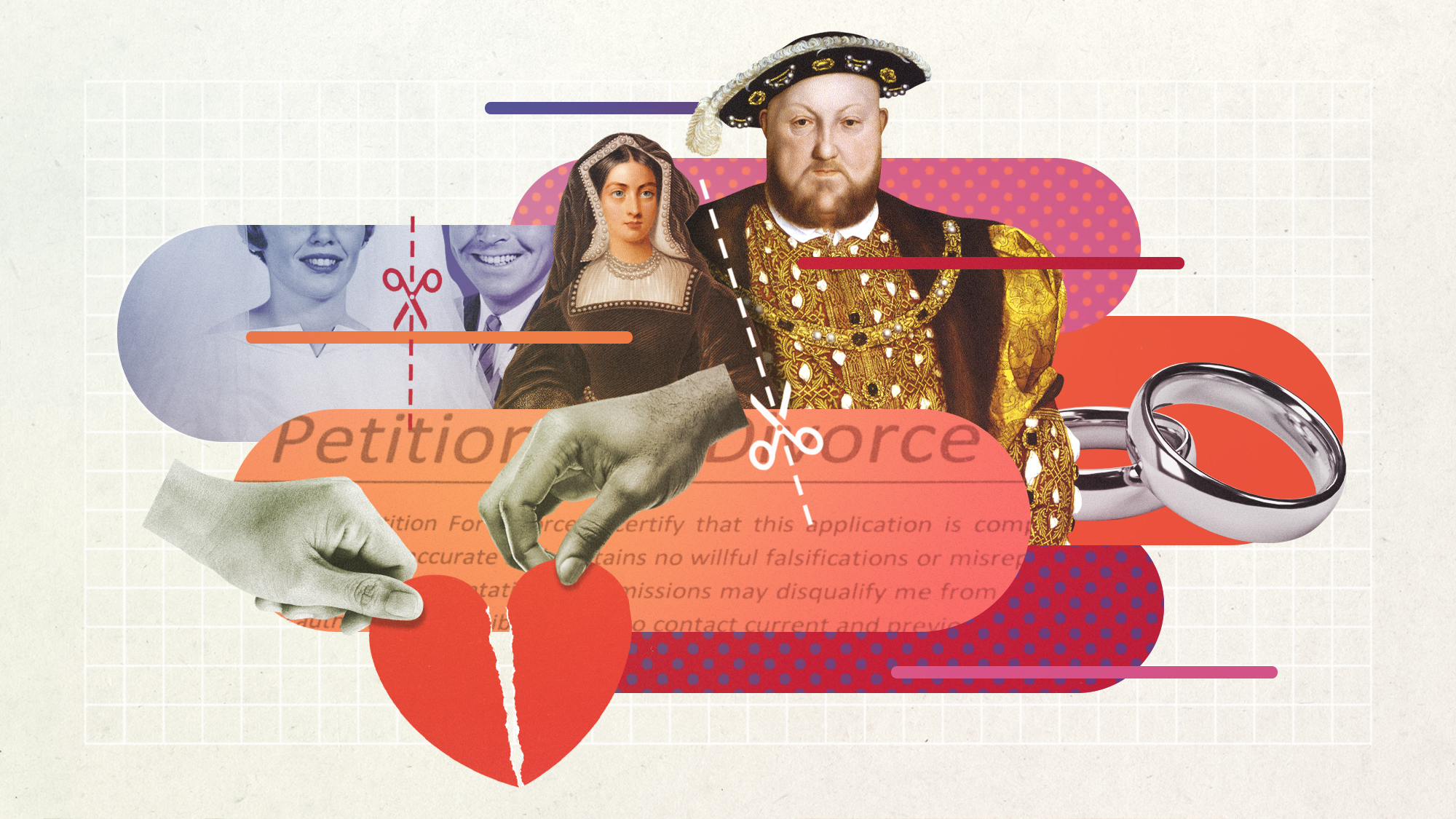52 ideas that changed the world: 35. Trial by jury
Throughout history, where open justice has faltered so too has democracy

A free daily email with the biggest news stories of the day – and the best features from TheWeek.com
You are now subscribed
Your newsletter sign-up was successful
In this series, The Week looks at the ideas and innovations that permanently changed the way we see the world. This week, the spotlight is on trial by jury:
Trial by jury in 60 seconds
In the middle of the afternoon of 29 December 2019, Carlos Ghosn was seen on CCTV walking from his house in Tokyo to a nearby hotel.
The Week
Escape your echo chamber. Get the facts behind the news, plus analysis from multiple perspectives.

Sign up for The Week's Free Newsletters
From our morning news briefing to a weekly Good News Newsletter, get the best of The Week delivered directly to your inbox.
From our morning news briefing to a weekly Good News Newsletter, get the best of The Week delivered directly to your inbox.
There the former Nissan CEO met two men, thought to be Americans. The meeting set in motion a chain of events in which the high-profile businessman rebelled against the entire system of trial by jury with an audacious escape from Japan via Istanbul to Beirut.
While jury trials are popular across the West, they are not used for all cases, and are less popular in other parts of the world. The majority of common law jurisdictions in Asia (such as Singapore, Pakistan, India and Malaysia) have abolished jury trials on the grounds that juries are susceptible to bias.
In the US, investigative website Mother Jones has reported extensively on racial bias in jury selection, while in the UK legal researcher LexisNexis has asked whether an unbiased jury can really exist.
Japan has a 99.9% conviction rate in criminal trials, something that Ghosn argues is evidence for him being right to flee. He claims he had “zero chance” of having a fair trial, an allegation Japan’s justice minister, Masako Mori, has refuted in a letter to the Nikkei Asian Review.
A free daily email with the biggest news stories of the day – and the best features from TheWeek.com
The number of wrongful convictions is hard to quantify, mainly because the mistake is often never rectified. However, figures compiled by the US National Registry of Exonerations suggest that since 1989, 2,265 innocent defendants served a combined 20,080 years behind bars.
Meanwhile, research carried out by University College London in 2010 found juries to be a “fair, effective and efficient” means of carrying out justice.
How did it develop?
According to the British historian G.M. Trevelyan, when the Scandinavians were not “on the Viking warpath” they were a “litigious people and loved to get together… to hear legal argument”.
Prior to this, the notion of a person’s peers deciding their fate grew out of the Ancient Greek and Roman tradition. In Ancient Greece, a mechanism called dikastai existed to ensure that no individual could choose their own jurors.
For cases that involved death, loss of liberty, exile, loss of civil rights, or seizure of property, the size of the dikastai could swell to between 1,001 and 1,501 who ruled on the case by majority. Likewise, in Ancient Rome, the majority of civil cases were settled using characteristics of a jury system.
In the early British-Scandinavian jury trials, warriors like the 10th-century Nordic lawyer Njall would present legal arguments to be decided on by a panel of peers. Trevelyan notes that they were “learned in folk custom and in its intricate judicial procedure”, creating a fertile breeding ground for jury-based justice in Britain during their occupation of the country.
In the 12th century, Henry II took the step of formalising the role of juries in deciding on land disputes, lighting the path for Magna Carta to set into law the right of British people to a jury trial before being imprisoned in the 13th century.
Britain’s Nordic-inspired early adoption of trial by jury saw it spread around the globe with the march of the British Empire. India conducted its first jury trial in Madras in 1665, for which a woman thought to be British, named Ascentia Dawes, was charged by a grand jury with the murder of her slave girl.
The US was also an early adopter. However, its legal system split with the UK’s at the time of the American Revolution in the 1700s. This means that across America today, the type of cases that are decided by juries is based on how English common law worked in the 1700s. One distinctive feature in the US is that jury verdicts in criminal cases must be unanimous, which is not the case in the UK.
Advocates of trial by jury argue that they are “the most democratic aspects of the constitution”. Writing in The Guardian, criminal barrister Paul Mendelle QC says that jury trials are “democracy in action every day of the week, not just once every four or five years”.
“There is no other part of the constitution that is so open to the public, where ordinary people participate in decisions of such immediate importance and wield real power,” Mendelle writes.
As the right-wing think-tank the Cato Institute highlights, the American founding fathers considered juries to act as “the conscience of the community”, and relied on juries “to hold the government to the principles of the Constitution”.
Rule of law has a tendency to deteriorate precisely because it stops being “open” and instead is conducted behind closed doors. Meanwhile, of the countries mentioned earlier in this piece that have scrapped trial by jury, only Pakistan is a democracy, while many have noted that India is on the path to dictatorship.
Trial by jury also has its critics, who attack its lack of fairness. Ghosn is certainly among those critics.
Others have claimed that jury selections are often influenced by race, with professor of law Ronald Wright writing in The New York Times that “anyone with a bit of common sense and a view from the back of the courtroom knows the colorblind ideal isn’t true in practice”.
However, in the UK, a 2017 review into criminal justice led by Labour MP David Lammy found that it was juries, rather than judges, that are consistent in their judgements “irrespective of the ethnicity of the defendant”.
Jurors are also human and thus fallible. While Mendelle notes that the evidence points towards juries making the right decisions most of the time, they are also open to influence or, in some cases, bribery.
In the early 2000s, British police were spending millions of pounds protecting jurors from threats and bribes. The Association of Chief Police Officers said police forces had problems with “nobbled” juries, in which members were offered bribes or made to feel they were obliged to deliver a “not guilty” verdict.
Cases such as that of American trade union leader Jimmy Hoffa, who appears in Martin Scorsese’s latest film The Irishman, underscores this fallibility. Hoffa was convicted in 1964 for jury tampering following allegations of his links to organised crime. Rumours of the mobsters’ influence over the justice system heightened when Hoffa disappeared in 1974 after reportedly meeting with a Detroit gang.
When it comes to how to convict and punish individuals, juries fit the same model that is often applied to democracy. While it is by no means perfect, it is the best solution to an impossible task. The right to a fair trial is an inalienable human right, and judgment by a person’s peers offers exactly that – a fair trial.
As the 18th-century British philosopher Jeremy Bentham argued, open justice is the “keenest spur to exertion and the surest of all guards against improbity”. Judgment by one’s peers is a vital part of that openness.
How did it change the world?
The right to trial by a jury ensured the protection of all citizens under the law, and, in the example of Magna Carta, replaced an arbitrary justice system based on the whims of the powerful.
Throughout history, from the dictatorships of Adolf Hitler’s Germany, Pol Pot’s Cambodia and Augusto Pinochet’s Chile, where the right to open judgment by a jury has failed, so too has the state’s commitment to justice.
A trial by jury is by no means perfect. Human beings make errors, as in the wrongful life imprisonment of the Birmingham Six in 1975. However, the alternative, justice carried out behind closed doors, is far more disconcerting.
The likelihood is that Ghosn will remain a fugitive from the Japanese justice system for a while longer, possibly for ever. But as Paul Mendelle says in the Guardian, many millions will face trial by jury in a process that is “vital for the health of the criminal justice system [and] vital for democracy”.
Joe Evans is the world news editor at TheWeek.co.uk. He joined the team in 2019 and held roles including deputy news editor and acting news editor before moving into his current position in early 2021. He is a regular panellist on The Week Unwrapped podcast, discussing politics and foreign affairs.
Before joining The Week, he worked as a freelance journalist covering the UK and Ireland for German newspapers and magazines. A series of features on Brexit and the Irish border got him nominated for the Hostwriter Prize in 2019. Prior to settling down in London, he lived and worked in Cambodia, where he ran communications for a non-governmental organisation and worked as a journalist covering Southeast Asia. He has a master’s degree in journalism from City, University of London, and before that studied English Literature at the University of Manchester.
-
 The ‘ravenous’ demand for Cornish minerals
The ‘ravenous’ demand for Cornish mineralsUnder the Radar Growing need for critical minerals to power tech has intensified ‘appetite’ for lithium, which could be a ‘huge boon’ for local economy
-
 Why are election experts taking Trump’s midterm threats seriously?
Why are election experts taking Trump’s midterm threats seriously?IN THE SPOTLIGHT As the president muses about polling place deployments and a centralized electoral system aimed at one-party control, lawmakers are taking this administration at its word
-
 ‘Restaurateurs have become millionaires’
‘Restaurateurs have become millionaires’Instant Opinion Opinion, comment and editorials of the day
-
 52 ideas that changed the world - 44. Land registration
52 ideas that changed the world - 44. Land registrationIn Depth The legal registration of land allowed the building of mass property empires
-
 52 ideas that changed the world - 40. Insurance
52 ideas that changed the world - 40. InsuranceIn Depth Managing and mitigating risk has been part of society since the dawn of humankind
-
 Divorce in 60 seconds: ideas that changed the world
Divorce in 60 seconds: ideas that changed the worldIn Depth From Henry VIII to the modern day, divorce has reshaped our notion of marriage